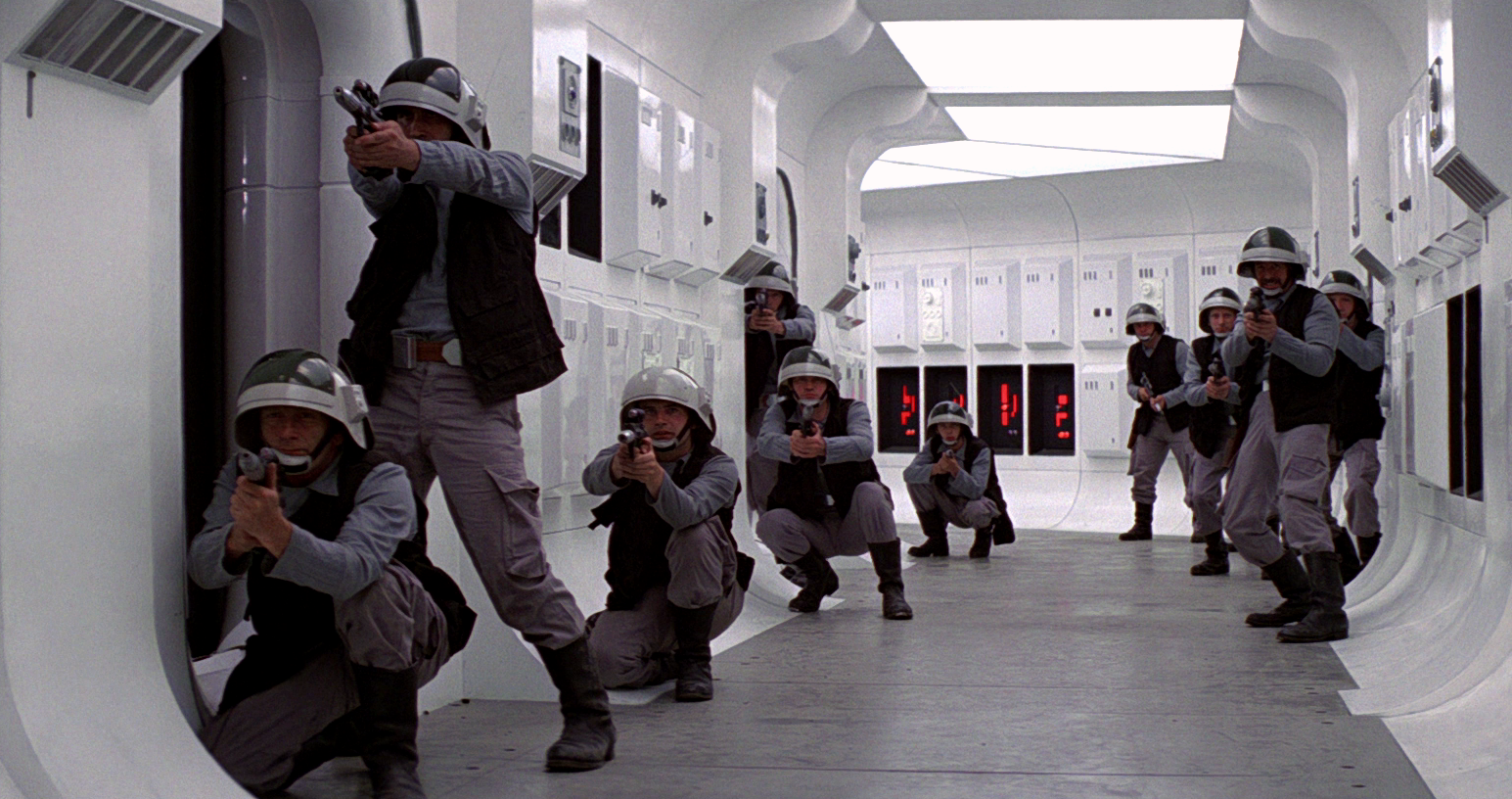Palpatine's Declaration of a New Order at the end of the Clone Wars alarmed Bail Organa along with many other members of the Galactic Senate. On the advice of Padmé Amidala, Organa decided against openly opposing the newly crowned Emperor and, instead, maintained the illusion of being a loyal senator, giving him access to information that would be vital to any resistance movement
On his homeworld of Alderaan, Organa began recruiting others to his cause, such as the Caamasi Jedi, Ylenic It'kla, and the noblewoman, Lady Alya Aldrete and her smuggling ring. He also ensured that his adopted daughters, Leia and Winter, were given intelligence training. Though Alderaan had abandoned their military forces in the wake of the Clone Wars and was now philosophically opposed to the concept of armed resistance, Organa recognized the importance of other fledgling resistance movements such as the Nizon resistance and Corellian Resistance and set about providing non-combatant support, including funding, technical expertise and intelligence gathered by his group.
He made a number of offworld allies as well, including Jedi Master Denia and her associates, and made a number of important victories, including the Battle of Nizon and the Battle of Byss.
Eventually the Corellian Resistance would come to realize the necessity of combining forces with other resistance groups if they were ever to defeat the Empire and dispatched Bria Tharen to meet with other resistance groups. Bail Organa agreed to send representatives to listen to the Corellians' proposals and sent Deputy Minister of Security, Hric Dalhney, along with Winter and Ylenic It'kla to meet with Tharen in Cloud City. Dalhney was unwilling to compromise Alderaanian ethics by committing his people to a combatant role and would only agree to continue the support they had already given. However, Winter came to agree with Tharen's arguments and promised the Corellian that she would argue the case for armed resistance with Bail Organa when she returned home.
Finally persuaded that armed resistance was necessary, Organa began to clandestinely arm his people despite stiff opposition from within his own government.

Rebel troopers wearing uniforms similar to those worn by the Alderaanian Resistance.
Bail Organa was eventually contacted directly by his former Senate colleague, Garm Bel Iblis, the leader of the Corellian Resistance. During a series of meetings on Corellia, Organa, Bel Iblis and Mon Mothma, leader of the Chandrilan resistance, agreed on the need to formally unify their movements and signed the Corellian Treaty, the founding document for the Alliance to Restore the Republic.